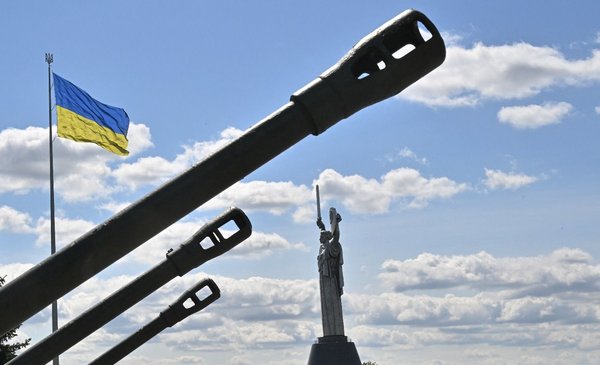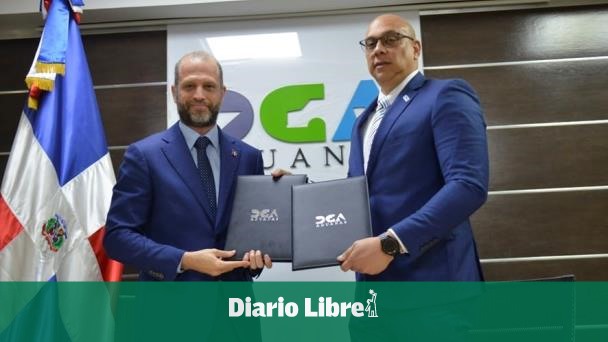With a spectrum that ranges from communism to social democracy, any attempt to reach a common statement on international political issues forces the sectors of the Broad Front to negotiate and give up positions. The result can either be a graduated declaration that reflects the “meeting points” between the different visions, or separate documents that show irreconcilable positions.
That second situation was what happened recently in the leftist coalition, when the Commission for International Affairs and Relations of the Broad Front (Carifa) passed to the leadership of the political force two reports with “significant differences” regarding the conflict between Russia and Ukraine. Those were in fact the words used by the president of the FA, Fernando Pereira, when he proposed to the Political Table to give a period of about three weeks to try to arrive at a “political synthesis”, or otherwise file the documents.
As left-wing sources told The Observer, one of the reports met the consensus of almost all sectors, but the Fuerza Renovadora group, led by Senator Mario Bergara, contributed its own, distancing itself from the majority position, for not agreeing on the attribution of a good part of the responsibility to the North Atlantic Treaty Organization (NATO) and the United States.
The analysis dates back to the end of February, when Pereira entrusted Carifa – in which Ariel Bergamino took office as the new president in those days – to carry out a more in-depth study of the conflict that had opened at the international level.
The text conceived in this area obtained the approval of the MPP, the Communist Party, the Socialist Party, the Artiguista Side, the 711, Uruguayan Assembly, the Party for the Victory of the People (PVP)among others.
However the sector of Bergara wrote a different interpretation of the factsa task that fell to Gabriel Papa (former adviser to the Ministry of Economy) and history teacher Fernando López D’Alessandro.
The reports sent to the presidency of the FA have Substantial differences in establishing the level of Russia’s responsibility in the conflict.
“Consulted the comrades of Fuerza Renovadora, They stated that it was good that the two reports were submitted together. They did not agree to look for meeting points”said to The Observer the leader of the Artiguista Side, José Bayardi. The former Minister of Defense – who was one of the main editors – recognized that in the Carifa “discrepancies were raised because consensus was not sought”.
Carlos Alejandro, leader of the 711 list founded by Raúl Sendic, stated that the incident caused “a lot of concern.” “I have been in Carifa for more than 30 years and, except for the issue of the FTA with Chile, we had always generated consensus positions. This is a new way that I do not share, because it breaks with a tradition that is established in the statutes. I am worried that in the future it will be like this,” he said.
“The FA has been wise in generating the political instances to have joint positions. We have issued resolutions on controversial issues, where many do not say anything to the outside -because it can be very bad to speak ill of Cuba within the FA or in the union movement- but in the organic they make deep questions. The important thing is to continue looking for consensus”, he claimed.
Consulted on the subject, Gabriel Papa preferred not to express himself on internal matters.
Between Russia, USA and NATO
The majority report made clear from the start “rejection” of armed conflicts, while the issue could have been resolved through diplomatic channels “if there had been the will of the parties.” The seven-page text – accessed The Observer– concedes that there is an imperialist attitude on the part of the Putin government but puts the focus on the fact that “the failure of the peaceful solution corresponds not only to Russia”, but also to Ukraine, the North Atlantic Treaty Organization (NATO) and “particularly to the government of the United States (USA)for being the country that hegemonizes NATO decisions.
The Carifa is dispatched against the Joe Biden administration which, given the “decline of its global hegemony and the rise” of China, “intends to recover space at least at the Eurasian level.” A large part of the report develops on this thesis: he maintains that Biden, apart from wanting to weaken Vladimir Putin, “aims to reaffirm leadership in the face of the legislative elections” and “favor sectors linked to the arms industry and its energy companies” .
FA sectors refer to the “Thucydides trap” to establish that “When there is a hegemonic power installed, before the rise of another power (China), the conditions for confrontation are generated that can lead to war”. Carifa lists that “George Bush’s commitment not to extend NATO’s borders to the East has been violated since the end of the 1990s”, in the face of “Russia’s rejection at every opportunity”. He also criticizes the support of Western leaders for the Euromaidan, the demonstrations in kyiv square in 2014 before the suspension by the then president Victor Yanukovych of the agreement with the European Union.
It is with this more critical approach to the West that the Fuerza Renovadora report shows its main discrepancy, by charging the inks especially against the movements of Russia.
The five-page document by Papa and D’Alessandro coincides with Carifa’s diagnosis of Putin’s “conservative pan-Slavism” but interprets that the Kremlin found in the expansion of NATO “the perfect excuse”.
The authors blame Putin’s ambition –which “brings painful memories of the old fascisms and the Catholic nationalism of the Spanish Falange”– for having “precipitated the war”, “trapped” that is “in a corral of branches while with the sanctions broke the backbone of their economy and expropriated them”.
Sergei SUPINSKY / AFP
Conflict between Russia and Ukraine opens internal in the FA
While the Carifa barely dwells on Russia’s recognition of the autonomy of the separatist republics of Donetsk and Lugansk –in some way the trigger of the armed conflict–, Bergara’s sector concludes that “the appropriation of Crimea (2014), the manipulation of secession in Donbas, are part of such a well-known script to excuse wars that it is not worth wasting time analyzing ‘the drama’ of the Russians in their so-called ‘republics'”. Putin, recall the representatives of the Renewal Force, “for a long time has been making statements where he denies the existence of Ukraine as a nation.”
The majority report Carifa proposes for its part that the solution lies in a “commitment by Ukraine and NATO, regarding Ukraine’s non-integration into the Atlantic allianceregardless of their integration into the European Union or not”. On the future of Donetsk, Lugansk and Crimea, however, they point out that “it remains in suspense because the terms of the negotiations have been mutating with the logic of events”.
Fuerza Renovadora, on the other hand, emphasizes that “Ukraine has the right to choose its own destiny both in the European Union and in the military alliance that it deems most convenient and nothing and no one has the right to limit its sovereignty. and less so with excuses as puerile as those offered by the imperialists of the Russian right”.







